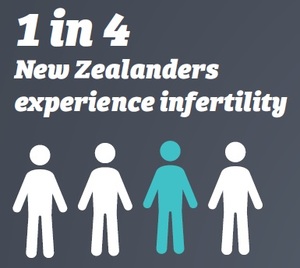Diagnosed infertility
Often, coming to terms with the reality that making a baby isn’t as easy as you imagined has its own grief attached. We recommend that you take as much control as possible, and have a plan. If you meet the criteria, get on the waitlist for publicly funded treatment as soon as you are able.
If you already have a child or children and are experiencing difficulty conceiving again, see our page on Secondary Infertility.
The demands of an infertility journey - particularly during treatment cycles – can often be all-consuming and put a strain on relationships. To read more about managing relationships through fertility challenges and coping strategies, click here.
Common causes of infertility
MEN (approx. 40%)
Male fertility problems can be caused by abnormalities
in sperm numbers, movement or shape. However, the
causes of many sperm problems remain unknown.
Causes could be:
• Failed vasectomy reversal
• Retrograde ejaculation
• Blocked ducts
• Varicocele
• Absence of vas deferens
• Undescended testes in childhood
• Autoimmune (antibody) disorders
More information on Male Factor Infertility...
WOMEN (approx. 40%)
Female fertility problems commonly include:
• Tubal problems
• Endometriosis
• Disorders of ovulation
• Polycystic ovarian disease (PCOS)
• Frequent miscarriage
• Hormonal problems
• Autoimmune (antibody) disorders
• Recurrent genito-urinary infections
Unexplained infertility
Up to 20% of couples (including those experiencing secondary infertility) will have no explainable cause for their infertility.
More information on Unexplained Infertility...
There is rarely a quick or simple answer to infertility problems. Infertility is not something you catch and in most cases, is not preventable.



